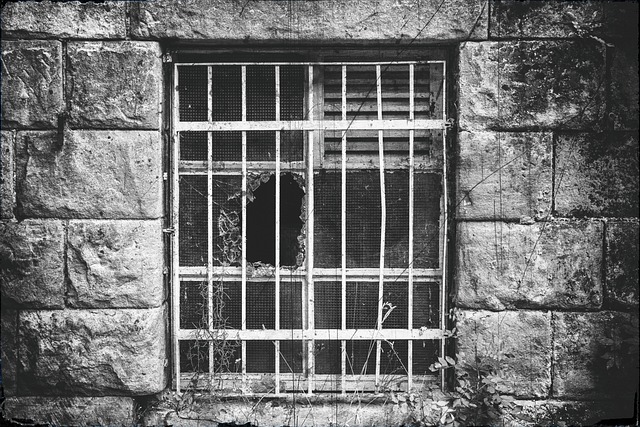DUI laws vary significantly between rural and urban areas, impacting conviction outcomes and post-sentence opportunities. Rural regions face resource constraints leading to fewer specialized programs and potentially harsher long-term effects, while urban areas offer more legal resources and support, including easier criminal record expungement after DUI. Understanding these disparities is crucial for individuals seeking a fresh start through expungement, as rural-urban differences can greatly affect their prospects.
In the realm of driving under the influence (DUI) laws, rural and urban areas exhibit striking differences. This article delves into the nuanced world of DUI regulations, focusing on how geographical settings impact enforcement, penalties, and sentencing. We explore the disparities between rural and urban environments, shedding light on the varying approaches to this complex issue. Additionally, we delve into crucial aspects like criminal record expungement after a DUI, offering insights for those seeking to navigate these legal landscapes.
- Understanding DUI Laws: A Comprehensive Overview
- Rural and Urban Settings: Key Differences in DUI Enforcement
- The Impact of Location on DUI Penalties and Sentencing
- Exploring Criminal Record Expungement Options After a DUI
- Case Studies: Real-World Examples of Rural vs Urban DUI Disparities
Understanding DUI Laws: A Comprehensive Overview

DUI laws vary significantly between rural and urban areas, with distinct implications for those convicted. Understanding these differences is crucial, especially when considering a criminal record expungement after DUI. In rural communities, law enforcement resources may be more limited, leading to potential delays in processing and fewer specialized DUI programs. As a result, individuals facing DUI charges might experience different outcomes compared to urban areas where there’s usually a higher density of legal resources and support systems.
Moreover, the impact on one’s future can vary greatly depending on whether a DUI occurs in a rural or urban setting. In rural areas, a conviction could have more far-reaching effects due to smaller populations and closer-knit communities. Conversely, urban areas might offer more opportunities for rehabilitation and record expungement, given the abundance of legal services and programs designed to assist individuals with DUI charges in securing a fresh start after completing their sentences.
Rural and Urban Settings: Key Differences in DUI Enforcement

In rural settings, law enforcement agencies often have fewer resources and a broader geographic area to cover, leading to potentially less stringent DUI (Driving Under the Influence) enforcement compared to urban areas. This disparity can result in varying approaches to identifying and prosecuting offenders. For instance, in remote regions, officers might focus more on high-risk driving behaviors rather than random road side checks due to limited manpower. Consequently, individuals facing DUI charges in rural environments may encounter different legal ramifications, including the potential for less harsh penalties or alternative sentencing options.
In urban centers, where crime rates are typically higher and populations more dense, DUI enforcement is often more robust. This is reflected in stricter traffic regulations, increased random breath tests, and a wider use of technology like sobriety checkpoints. Urban jurisdictions also tend to have more established legal precedents for DUI cases, which can impact the outcome of criminal records expungement after DUI. As such, individuals in urban settings need to be particularly aware of their rights and the potential long-term implications of a DUI conviction.
The Impact of Location on DUI Penalties and Sentencing

In many jurisdictions, the impact of location plays a significant role in DUI (Driving Under the Influence) laws and sentencing. Rural areas often have less stringent penalties compared to urban centers due to lower crime rates and different societal priorities. This can result in reduced fines, shorter license suspensions, or even more lenient options for first-time offenders. For instance, certain rural communities may emphasize rehabilitation programs over harsh punishments, aiming to help individuals overcome addiction rather than solely focusing on retribution.
In contrast, urban areas typically face unique challenges with DUI cases. Higher population densities and increased traffic volumes mean that drunk driving incidents can have more severe consequences. Urban courts often impose stricter penalties, including longer license revocations, higher fines, and mandatory jail time, especially for repeat offenders. Additionally, the availability of resources for criminal record expungement after DUI may vary significantly between rural and urban jurisdictions, further influencing the long-term impact on an individual’s life and future opportunities.
Exploring Criminal Record Expungement Options After a DUI

After a DUI (Driving Under the Influence) conviction, individuals often face questions about their future and how it might be impacted by this criminal record. One avenue that’s gaining importance is exploring options for criminal record expungement, especially in rural versus urban settings. This process allows people to clear or seal certain types of arrests and convictions from their records, offering a fresh start.
The availability and strictures around criminal record expungement after a DUI vary significantly between rural and urban areas. Urban regions typically have more progressive policies, often providing easier access to expungement for eligible individuals. In contrast, rural jurisdictions may have stricter criteria or less straightforward procedures, making the process more challenging. Understanding these differences is crucial when navigating the legal system, as it can greatly impact an individual’s prospects after a DUI offense.
Case Studies: Real-World Examples of Rural vs Urban DUI Disparities

In many regions, there’s a notable disparity in DUI (Driving Under the Influence) laws and their enforcement between rural and urban areas. Case studies reveal that rural communities often face unique challenges when it comes to DUI-related issues. For instance, in remote areas, law enforcement agencies may have limited resources and fewer officers per capita compared to urban centers. This can lead to longer response times for police, making it harder to intercept drunk drivers. As a result, rural residents might perceive a lower risk of getting caught, potentially contributing to higher DUI rates.
Additionally, the availability of support services in rural settings is often scarce. Unlike urban areas with well-established rehabilitation centers and criminal record expungement programs after DUI, rural communities may struggle to offer similar resources. This can make it more difficult for individuals to seek help for substance abuse issues and successfully complete any required rehabilitation programs, which are integral parts of DUI sentences in many jurisdictions. As such, these disparities highlight the need for tailored legal and support systems that address the unique challenges faced by those living in rural regions when dealing with DUI offenses.
In examining rural versus urban DUI laws, it’s clear that location significantly influences enforcement, penalties, and sentencing. Rural areas often face challenges in terms of limited resources and less stringent regulations, while urban centers grapple with higher incident rates and stricter policies. These disparities underscore the importance of understanding both local and state-level legislation when navigating a DUI charge. Furthermore, exploring criminal record expungement options after a DUI becomes crucial for individuals seeking to move past their legal troubles and restore their rights. By staying informed about these varying approaches and available remedies, those facing DUI charges can make more strategic decisions regarding their legal representation and future prospects.






